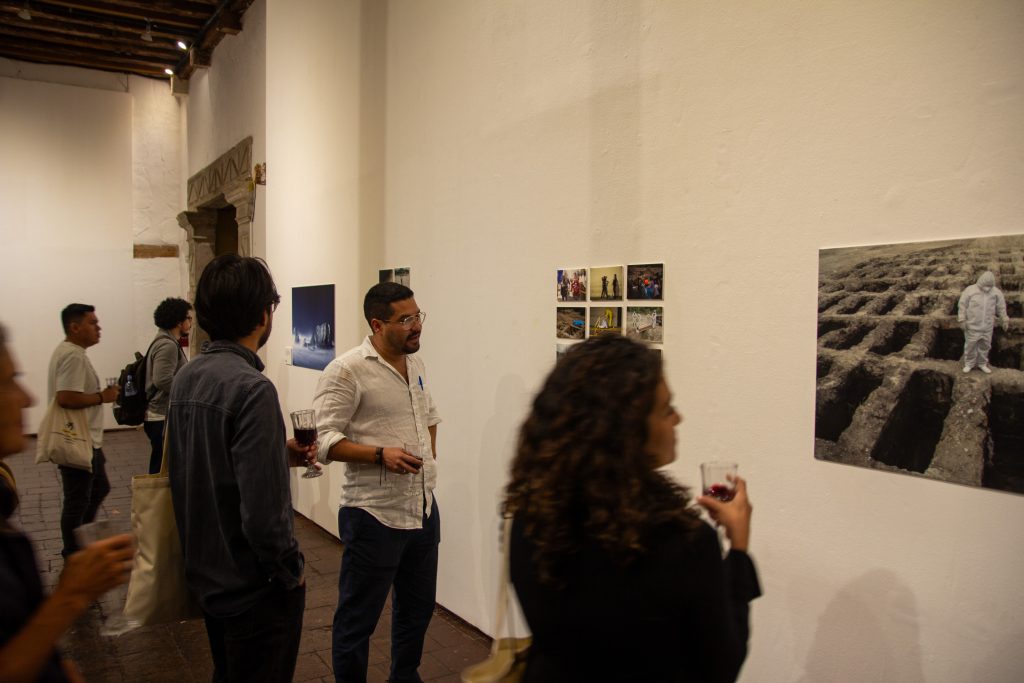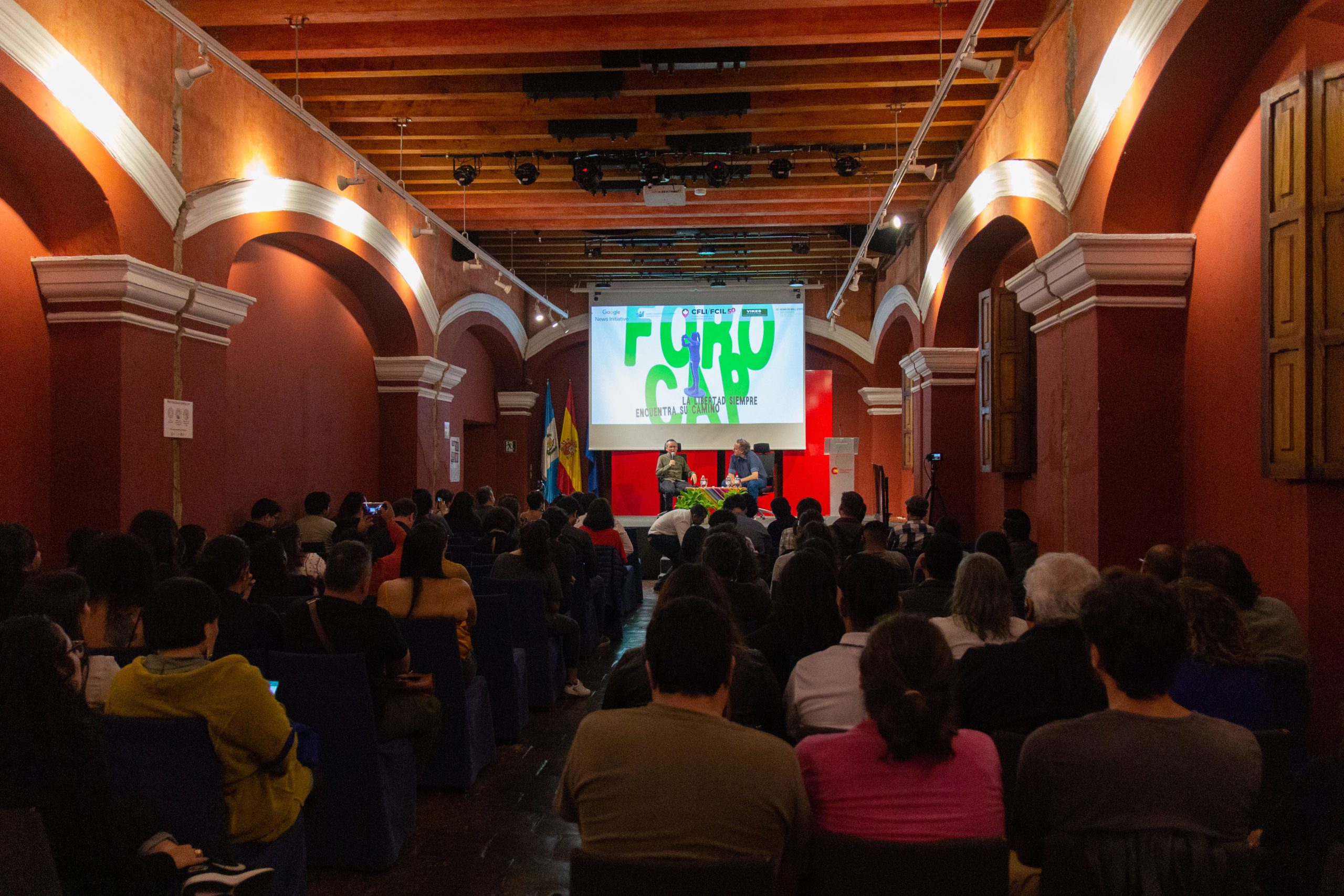“Is Costa Rica prepared to face problems that the rest of Central America has been facing for decades?”
That question was posed to us this week by veteran Salvadoran journalist Carlos Martínez. That’s the same question that we at El Colectivo 506 have been asking ourselves for years, every time we read or listen to the reflections of journalists from other countries in our region about the threats to democracy, security, and well-being in their countries. And it’s all closely linked to the opportunity that has appeared in San José this week: the Central American Journalism Forum (ForoCAP) Costa Rica, the 14th edition of a pioneering event.
ForoCAP is organized by El Faro, the first digital native newspaper in Central America, founded in 1998. Thanks to years of volunteer work by journalists from El Salvador, El Faro is today a touchstone for quality journalism in our region.
Carlos Martínez was part of that first generation of journalists, and has traveled with El Faro and also ForoCAP throughout their histories. Carlos is also the author of the book “Juntos, todos juntos” (“Together, All Together”), about a caravan of migrants trying to reach the United States from Central America; he’s a two-time winner of the Premio Gabriel García Márquez. He was a founder of ForoCAP, and is now the event’s content coordinator.
Last year, to guarantee the continuity and security of its journalism, El Faro founded a nonprofit organization in Costa Rica. As they explain on their website: “This measure was taken as a consequence of the dismantling of Salvadoran democracy, the lack of controls on the exercise of power, and attacks on press freedom.” A positive side effect of that change is that ForoCAP has arrived in Costa Rica for the first time, with events throughout Thursday, July 6 and Friday, July 7, in Barrio Escalante, San José. (For more information or to register for the event, visit the ForoCAP 2024 Costa Rica page here.)
Carlos spoke with El Colectivo 506 by phone to tell us more about the evolution of the event, and the conversations that will take place in Costa Rica. Below are excerpts from the conversation, edited for clarity.

Why did El Faro start developing a journalism event series?
One of the main concerns of our director, Carlos Dada, since El Faro was founded, was how to connect the newspaper with the world. For a long time, Central American journalism and Salvadoran journalism were quite isolated from what was being done elsewhere. Huge debates had been overcome in South and North America, but Central America remained quite isolated, and Central American journalists had very little contact with the world.
We decided to create a journalism event that would focus on Central American problems, but that at the same time would allow us to connect with colleagues from different parts of the isthmus. To nourish ourselves with debates that were happening in other parts of the world, not only about journalism but also about politics, about societies.
We thought it would be cool to have a platform in El Salvador to generate interaction with colleagues in the region. We created a truly small event, but the forum grew over time, thanks largely thanks to the generosity of colleagues around the world—and also thanks to the sympathy they felt when they saw us trying to start a journalism project in our region.

If you had to choose one kind of impact that ForoCAP has had on journalism in the region, what would it be?
In times as distressing as these—what the region is experiencing now, and what we have been experiencing for some time—I believe that the Central American Forum is a space for meeting and solidarity between colleagues who are experiencing adverse circumstances, and who are relieved by the feeling that we are not alone. In a way, this protects the practice of journalism in our region. These synergies are beneficial in various ways, and create a network of solidarity.
And now ForoCAP is coming to Costa Rica. My perception is affected and limited by being a foreigner, but it has always seemed to me that although there has been a lack of communication between journalists from Central American countries in general, journalists from Costa Rica are even less connected with the rest of the region. Do you see it that way?
It’s understandable to me, to the extent that Costa Rica, due to its history, has particularities that make it seem like an artificial graft in Central America. Costa Rica… is light years away from the debates that take place in some of these Central American countries. We found more points of contrast and intersection among colleagues who practiced journalism in Honduras, Nicaragua, and Guatemala, than with journalists from Costa Rica, who seemed [as if they were] from Europe! I get the impression that somehow, the debates that we all had in the rest of Central America seemed very far from Costa Rica.
However, in this edition of ForoCAP, one of our interests is [to question ourselves]: is Costa Rica really that far away in terms of problems from the rest of Central America? Especially at this time in history, when Costa Ricans seem to be discovering drug trafficking. They are scared as they discover something that has been happening for decades. Costa Rica is not exempt from being a player in international drug trafficking, because it has an essential geographical location for the distribution of narcotics in the world. Is Costa Rica prepared to face problems that the rest of Central America has been facing for decades?

There are threats from drug trafficking and violence, and also threats to democracy, such as reduced trust in institutions. In that sense, what do you think are the lessons that journalists from the rest of the region offer to Costa Rica?
It is essential that societies not take absolutely anything for granted. That civil society does not take democracy for granted, and does not take the normal functioning of institutions for granted. In societies like Costa Rica, whose social indicators are very different from those of the rest of the region, it is probably more difficult to spot these things.
Central America’s periods of democracy have not been able to solve the major problems that affect most of our societies. Our periods of democracy did not substantially alleviate the enormous inequalities in our region… the enormous distance where misery coexists with opulence. They failed to generate security for the population, or jobs, or to stimulate social mobility. For a long time, we took for granted that democracy’s beautiful Greek image was enough [to respond to the needs of societies]. And when democracies fail to solve the fundamental problems of their societies, people are increasingly inclined to look for other alternatives.
In the case of El Salvador, where we have already fully entered into a dictatorship, the entire democratic period failed to address those central problems that we had as a country. [Democracy] failed to solve the problem of violence… so when a guy appears who promises to work miracles, our society [welcomes him].
The only antidote to this is a very strong, highly organized civil society with the capacity for agency. Journalism is a fundamental instrument for all of that. Furthermore, I believe, what journalism does to a large extent is educate people to live in democracy.
If I would dare to suggest or recommend anything to Costa Rican society, it is that. One, don’t take your democracy for granted. And two, the same applies for journalism. Our job is to always call everything into question and create a critical civil society, with the intellectual capacity to converse with those who govern us. There are no shortcuts for that. It is a permanent search, and nothing is guaranteed. That is so important to keep in mind. Our democracies are not guaranteed.
Activities at ForoCAP 2023 in Guatemala.





